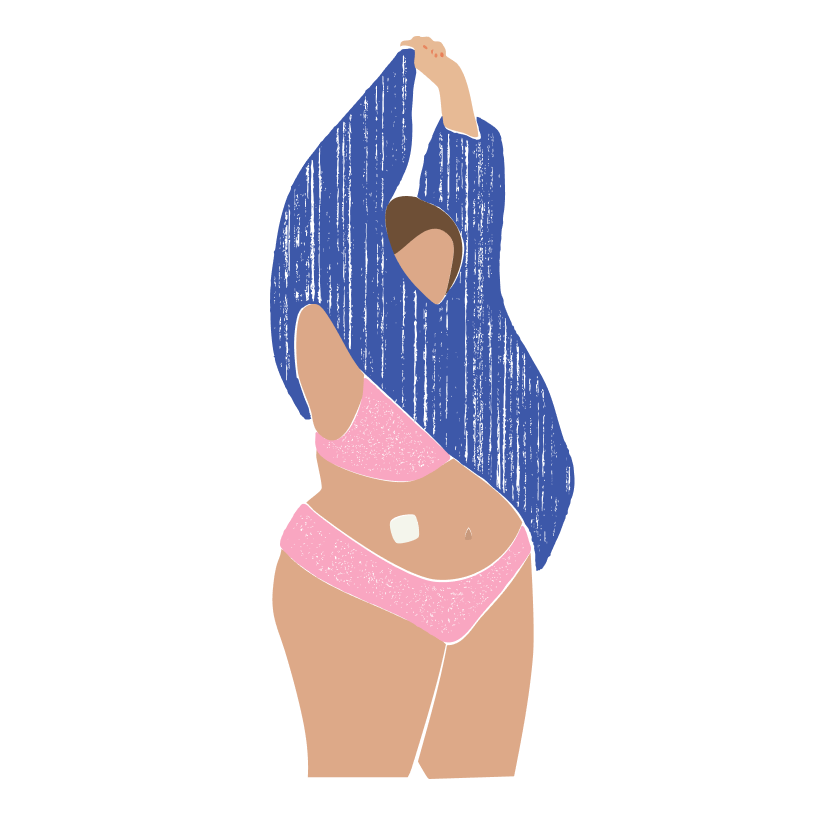Hot flashes and night sweats, or vasomotor symptoms (VMS), are common but challenging parts of the menopause transition. These symptoms can disrupt your sleep and affect your quality of life, sometimes lasting over 7 years. Fortunately, there are several effective treatment options that can help ease VMS. Partnering with a menopause specialist can guide you in finding the right solution for your needs.
What exactly are hot flashes / night sweats?
Hot flashes and night sweats are the single most common sign of hormone change, affecting about 75 percent of women, but every woman experiences her own version of this classic thermostat-gone-haywire symptom. While they’re always accompanied by a feeling of uncomfortable warmth, look at the myriad ways hot flashes show up in our lives:
- The sensation of heat may be mild to intense, spreading through the chest, neck, and face.
- Hot flashes might come with sweating and/or red blotchy skin—or not.
- They might also be accompanied by a racing heart, dizziness, and even anxiety.
- Episodes happen at vastly different frequencies for different women, ranging, on average from a few per week to 10 per day.
- A single episode lasts anywhere from 30 seconds to about ten minutes.
- Body chills might follow as a hot flash lets up.
- In a particularly unfair twist, hot flashes can be more severe for women with a history of breast cancer, or women with menopausal symptoms caused by cancer treatment.
Night sweats—which are simply hot flashes that happen at night—have their own variations. They may be barely noticeable, or wake you from a sound sleep drenched in sweat that you need a pajama change. Together, hot flashes and night sweats are known as vasomotor symptoms, or VMS.
Depending on how they show up for you, VMS may seriously compromise your quality of life and lead to significant, yet underrated consequences. “Hot flashes can go on for years and take a toll on a woman’s health and well-being,” explains Dr. JoAnn Manson, professor of women’s health at Harvard Medical School and professor of epidemiology at Harvard School of Public Health.
One of the biggest costs is disrupted sleep, when night sweats wake you up over and over, sometimes kicking off middle-of-the-night insomnia. Just one night of choppy rest leaves you exhausted; over time, the consequences get more serious. Prolonged periods of poor sleep can lead to irritability, anxiety, overeating, lack of energy, poor concentration, forgetfulness, and even high blood pressure, heart disease, metabolic dysregulation and depression.
What causes these symptoms?
Welcome to a women’s health mystery! After decades of research, the underlying mechanism behind VMS is still unclear. One thing is sure though: Hormone withdrawal during the menopause transition plays a huge role. Hot flashes occur when the brain’s thermoregulatory center (the hypothalamus, which controls heat production and loss), struggles to do its work. As estrogen levels change, the hypothalamus becomes more sensitive to slight changes in body temperature. Thrown off by hormone fluctuation, the brain thinks the body is too warm and triggers a series of mechanisms meant to bring down temperature, including expanding blood vessels near the skin’s surface, increasing blood flow and heart rate, and activating sweat glands. So, essentially, a hot flash is your body doing a great job of cooling you off when you’re not actually overheated.
When do hot flashes and night sweats finally stop?
This question is still in play, but we can start to answer it with the Study of Women’s Health across the Nation (SWAN), published in JAMA Internal Medicine. The large, long term study found that VMS typically begin a few years before menopause and persist for an average of 7.4 years. New research indicates that VMS actually start much earlier (11 years ahead of menopause for 44 percent of women!) and continue far longer than previously thought. At least 20 percent of women experience hot flashes that persist up to 15 years, and for a significant number, they may go on for decades, or never entirely go away. The SWAN study found racial and ethnic differences as well. For example, VMS lasted an average of:
- 4.8 years for Japanese American women
- 5.4 years for Chinese American women
- 6.5 years for non-Hispanic white women
- 8.9 years for Latina women
- 10.1 years for Black women
Factors that can extend the frequency of hot flashes, and the length of time a woman experiences them, include smoking, weight, experiencing depression, anxiety, and a sedentary lifestyle.
What can improve hot flashes?
VMS frequency and severity does decrease with age, but that doesn’t mean you should simply endure them, especially given the arsenal of effective treatments that can help.
Let’s begin with simple lifestyle changes, which, in the case of VMS, boils down to avoiding triggers. They’re different for every woman, but pay close attention to the following dietary choices to see if they set off hot flashes, or make them worse:
- Alcohol (cutting down on drinking often helps VMS)
- Caffeine (the amount of caffeine as well as timing may make a big difference)
- Any hot beverage (embrace iced!)
- Spicy food (lean into other herbs and the huge range of not-hot spices)
It’s obvious, but staying away from tight, non-breathable clothing can help, as well as sleeping in a cool bedroom, and using fans whenever and wherever you need them.
Botanical therapies can be an effective alternative to prescription medications (we’ll talk more about those below). Black cohosh, a flowering plant native to North America, is one of the most studied herbs for management of hot flashes. Other options include Siberian rhubarb and maca, both promising symptom relievers.
Prescription medications bring the quickest and most powerful relief for VMS, starting with hormone replacement therapy (HRT). Regardless of whether menopause is natural or brought on by medical treatment or surgery, HRT relieves hot flash symptoms by up to 90 percent, making it the most effective treatment for VMS. Moreover, the North American Menopause Society, the leading nonprofit organization focused on women’s health in midlife, has declared HRT safe, and even beneficial, for most women.
Other medications can relieve hot flashes for women who shouldn’t take HRT (that group includes breast cancer survivors), or for those who prefer not to. For example, gabapentin, which also helps improve sleep, and low doses of antidepressants such as venlafaxine, which decreases hot flashes by about 60 percent.
Don’t suffer in (sweaty) silence
Hot flashes are one of the major reasons women in midlife seek medical help and stock up on dietary supplements and over-the-counter remedies, according to a population-based, cross-sectional study of women 40–65 years old in the US. Despite all the treatment options available, most women don’t come away with the care and relief they need. Midi was created to fill that gap, integrating the full range of science-backed solutions to treat VMS along with all the other symptoms women face in midlife.
Wherever you turn for support, don’t stop until your symptoms improve. Untreated VMS are associated with lost productivity and more outpatient healthcare visits. Translation: Not dealing with hot flashes and night sweats makes it harder to work, feel well, and live life to the fullest. You deserve better, so get the help you need.
The Takeaway
- If you are experiencing hot flashes and night sweats (aka vasomotor symptoms, or VMS), you’re not alone. These are some of the most common, and intense, symptoms of menopause transition.
- Night sweats can make it hard to get a good night’s rest, which greatly impacts quality of life, and your future health.
- VMS are often a result of hormonal changes and may last more than 7 years.
- Importantly, you don’t have to put up with VMS. Whether you prefer prescription medications, supplements and botanicals, or wellness therapies, there are many safe and effective ways to relieve your symptoms. A Midi clinician, or a doctor with expertise in perimenopause and menopause, can help.
If you’re in perimenopause or menopause and want guidance from clinicians who specialize in women’s midlife health, book a virtual visit with Midi today.
Hormonal change is at the root of dozens of symptoms women experience in the years before and after their period stops.
Our trained menopause specialists can help you connect the dots to guide you towards safe, effective solutions.
Whether you need personalized guidance or a prescription routine to tackle symptoms—including brain fog, hot flashes, sleep trouble, mood swings, and weight gain—we’ve got you covered. Learn more here.
Midi’s mission is to revolutionize healthcare for women at midlife, wherever they live and whatever their health story. We believe that starts with education, to help all of us understand our always-changing bodies and health needs. Our core values guide everything we do, including standards that ensure the quality and trustworthiness of our content and editorial processes. We’re committed to providing information that is up-to-date, accurate, and relies on evidence-based research and peer-reviewed journals. For more details on our editorial process, see here.
 Redeat Gebeyehu
Redeat Gebeyehu



